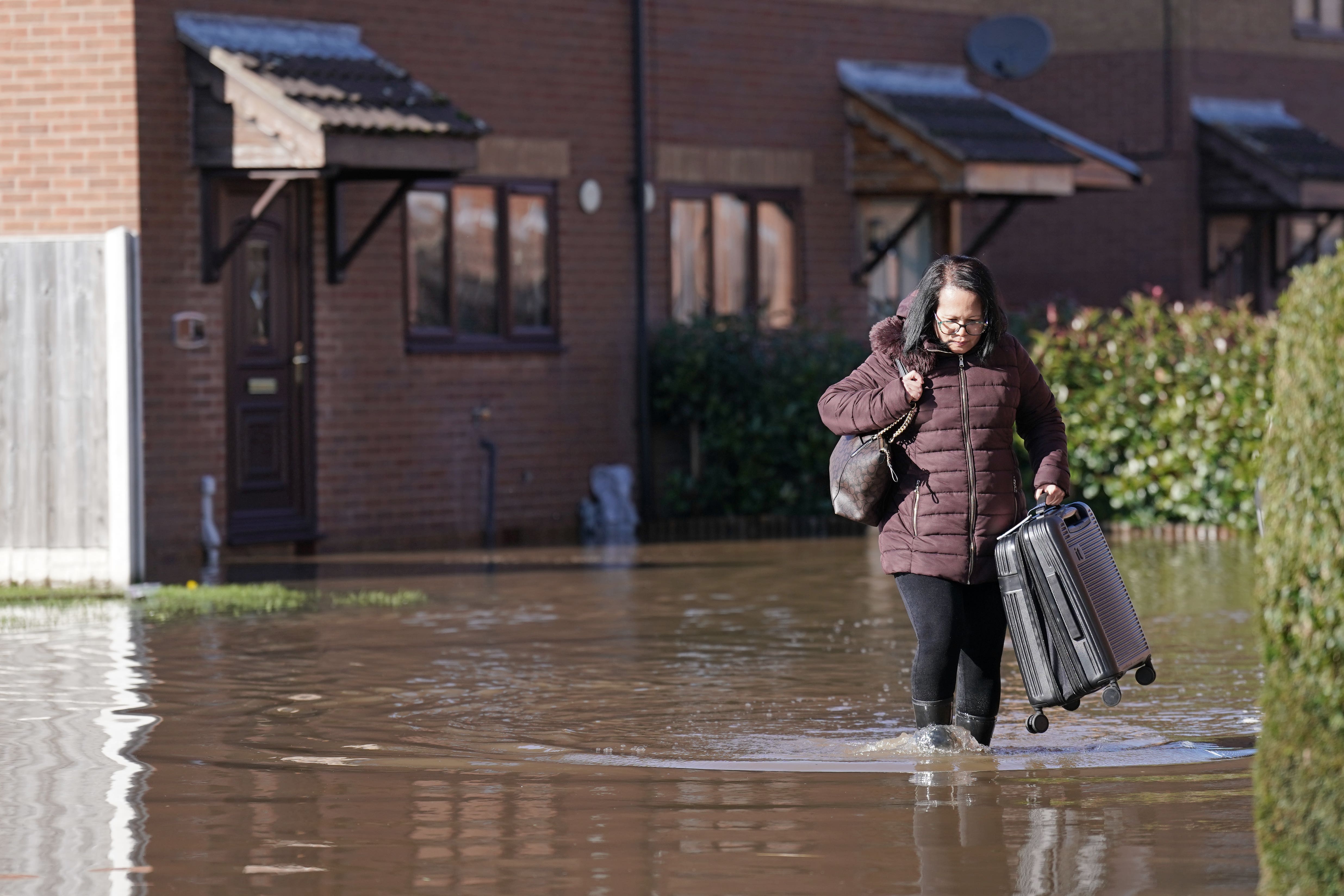Storm Babet could just be the beginning of our water woes
The cycle of floods and droughts the UK is experiencing are not going to stop on their own, writes water expert Mark Smith. So here’s what we can do to take water out of the climate crisis…


Storm Babet has brought widespread flooding to the UK, with tragic loss of life and towns evacuated, while severe flood warnings remain in place. Unfortunately, this is likely to be only the beginning of the winter flooding which has already come to feel like an annual crisis. This is particularly true of the west of England where there is mounting evidence that the climate has altered and is continuing to do so at pace.
However, we are also seeing an increase in drought in the UK. Everything under a line drawn between Bristol and Peterborough now regularly goes through periods of dramatic water shortage. Britain is experiencing these extremes of both droughts and floods because – as is true all over the world – climate change is increasingly manifesting itself as a water crisis. According to the National Infrastructure Commission, by 2050 the UK will need an extra 4 billion litres of water each day. This equates to 25 per cent as much water again as we are using today.
Given that England also has a 25 per cent chance of experiencing a very serious drought before 2050, it makes sense to capture the water at times of plenty – or flooding such as we are currently experiencing – so that we can use it in drier times. There are increasing calls for a national engineering approach which – in addition to building new reservoirs – could find a way to use captured flood water by moving it to the driest areas of the country. Theoretically, this type of infrastructure is feasible, but it would be very expensive.
This means we must also think locally, looking at water on a catchment-based scale. It is estimated that of the extra 4 billion litres of extra water that will be required by 2050, 2 billion will need to be found by managing our water resources better, which means reducing our water consumption. However, most people currently have no idea how much water they use. In fact, it’s a per capita consumption of 140-150 litres per person per day which is profligate, one of the highest in Europe.
We’re also the only country in the world which doesn’t have water meters. We need to introduce a policy of putting a water meter into every house in the UK. Water meters shouldn’t be used to calculate water bills. However, “gamification” schemes based on non-financial incentives to reduce water use could be employed locally. For example, a scheme in Boston, Massachusetts whereby local communities “adopt a water hydrant” has worked well.
With meters ubiquitous, people would be able to become aware of their water use. This is vital as you can’t manage what you can’t measure. In fact, most people are able to easily cut their own water consumption by 20-25 per cent through simple actions like not leaving the tap on, taking shorter showers, using modern white goods and fixing leaking taps and toilets.
Water butts should also be installed in all houses. In times of heavy rain such as we are currently experiencing, people need to be capturing and storing rainwater. People could be incentivised to install proper water butts and collect rainwater to use in their gardens. Some water companies are already offering water butts and other water-saving devices at reduced prices or for free, and we are seeing incentives for the creation of local water recycling schemes.
Water butts would be much more likely to become commonplace if it were possible to make a hosepipe ban for gardens in summer permanent. This currently seems like an extreme position to adopt, but attitudes may change as climate change escalates. Indeed, in the future it is possible that we might come to see the use of private hosepipes between May and October as being as damaging as single-use plastics.
The next step would be to take water from water butts in individual homes and provide people with mini membrane-based treatment systems which they could use in their own homes to render rainwater from their water butts drinkable. This might be a long way off, but nothing is stopping us from beginning today to have a national conversation about reducing water use and increasing personal efficiency.
The conversation needs to happen because the floods and droughts aren’t going to stop. We need to stop thinking that it’s our right to have endless amounts of water. Rather than relying on expensive engineering projects to manage water for us, we need to change the way we use it, and we need to start seeing it as a precious resource.
Mark Smith is the water sector director for environmental and engineering business the RSK Group



Join our commenting forum
Join thought-provoking conversations, follow other Independent readers and see their replies
Comments